Premier League
Have analytics gone too far? Author argues we're devaluing human creativity
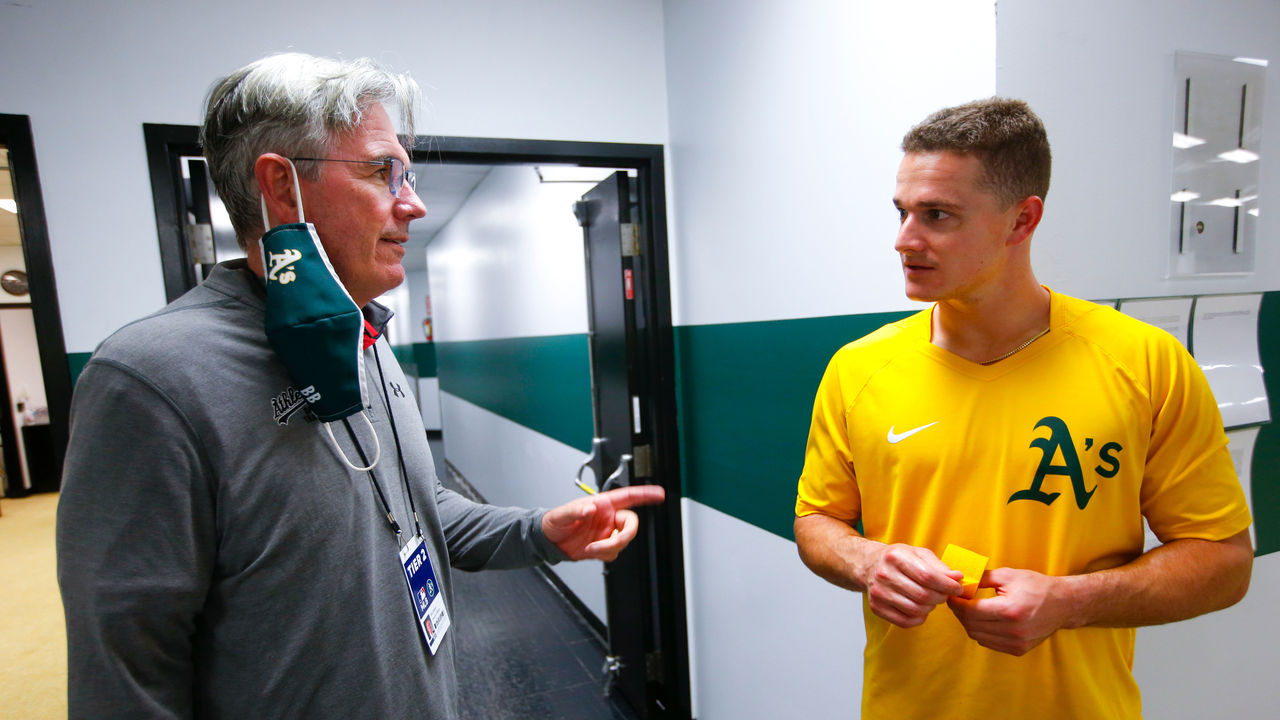
As a magazine storyteller, Chris Jones has written about astronauts, filmmakers, game show winners, magicians, one U.S. presidential nominee, the youngest manager in pro baseball, and Conor McGregor, who put Jones in a rear chokehold at his request. (Certain he could stay conscious, Jones passed out in seconds.)
Jones never profiled Billy Beane, though he tried. When Beane was general manager of the Oakland Athletics, Jones asked to shadow him to learn about his approach to roster-building. Sure, Beane said – just not yet. Another writer was hanging around the A’s front office, but Beane doubted the guy would publish anything.
“And then ‘Moneyball’ comes out,” Jones said over the phone last week, referring to Michael Lewis’ 2003 book. “Then it became a huge bestseller and the movie, and changed the world.”
By spotlighting how Beane ran the A’s, Lewis made analytics popular. Crunching baseball’s voluminous data helped Beane acquire undervalued players, like batters who got on base a lot, for little cost. Everyone began to look for overlooked opportunities. Baseball teams shift a lot nowadays. The NBA ditched the mid-range jumper to shoot threes in bulk. Win probability models spur NFL coaches to go for it more often on fourth down.
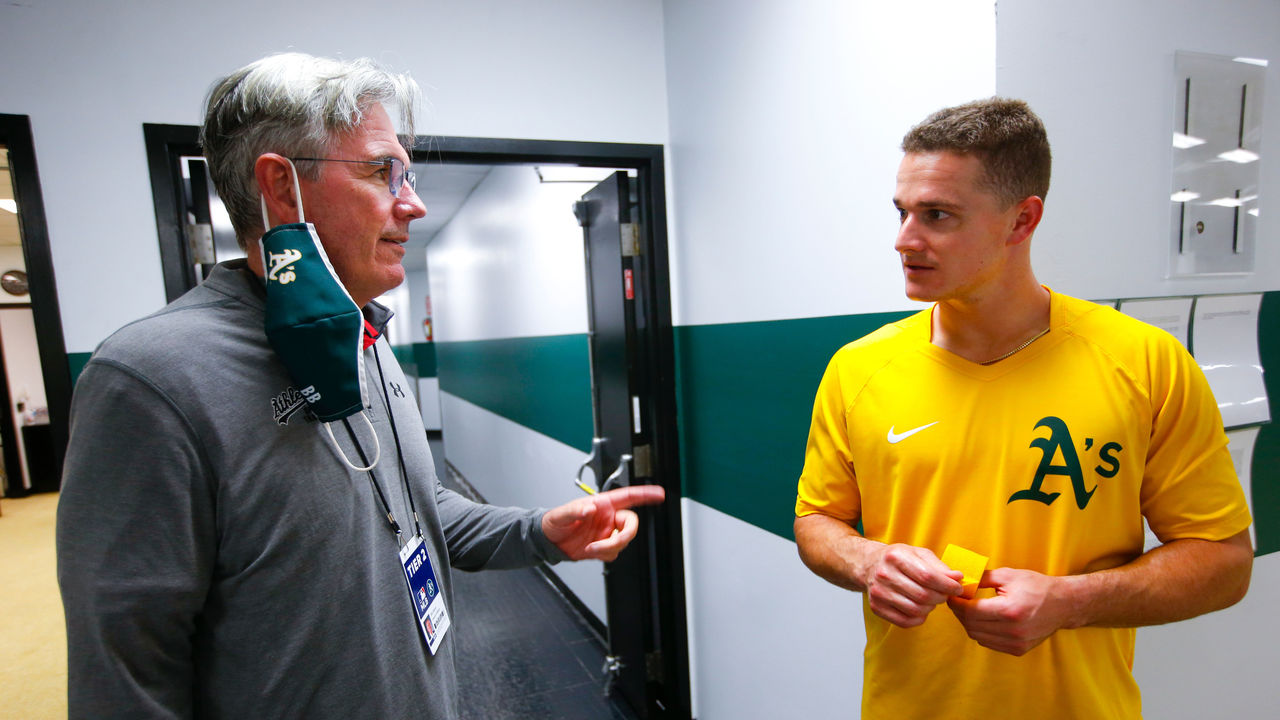
Jones enjoyed “Moneyball” but thinks the movement it inspired went too far. His new book – “The Eye Test: A Case for Human Creativity in the Age of Analytics,” out Tuesday – counters the notion that numbers should drive decision-making in all walks of life, sports included. He’s met a lot of curious, adaptive, empathetic, expert people. What happens, he wonders, when the world discounts what they see and feel?
“I’m worried that people are going to write that the book is an anti-‘Moneyball’ book,” Jones said. “It’s not. I just think data has its limits. And where it has its limits, those are opportunities for people to shine.”
Jones, who’s written for Esquire, The New York Times Magazine, ESPN, Grantland, and Netflix, lives near Toronto in Port Hope, Ontario. He spoke to theScore about a range of topics that relate to his book, including Derek Jeter’s defense, the Tampa Bay Rays’ 2020 World Series loss, and the ingenuity of Jason Witten and Mohamed Salah.
The conversation has been edited for length and clarity.

theScore: “The Eye Test” covers a lot of ground: sports, policing, Hollywood, the 9/11 victims compensation fund. Everywhere in life, you argue, problem-solving could stand to be more humane and less reliant on algorithms and spreadsheets. What made you want to mount that argument?
Jones: My first sportswriting job was as a baseball beat writer. I covered the Blue Jays for (Canadian newspaper) the National Post. I learned a ton from old baseball guys. Jim Fregosi was the manager of the Jays. Every Sunday we were on the road, he would sit in the dugout with me and teach me something about the game. I still remember one I got on the changeup in Cleveland. It was 20 minutes on this single pitch.
“Moneyball” came out a few years later. When it came out, I was like, “This is super cool.” I think the movie’s fantastic. But then I felt like that movement started going too far, and those old guys who taught me stuff in the late ’90s were exactly the kind of people who were being ridiculed or dismissed as morons, basically – do you know what I mean? – that they didn’t know what they thought they knew.
I think data does provide some useful corrections. I’m not saying I’m anti-data. I’m just saying I think that, like a lot of revolutions, it’s gone too far and the collateral damage is starting to be something that we need to reckon with. I think there are claims being made about analytics that are not true, and if you dare to raise opposition, you’re cast as a heretic or a moron or you believe in fairy dust.
What I’m trying to say is: No. There’s a place for data, but there’s also a place for experience. There’s still a place for multiple perspectives. Nearly 20 years after “Moneyball” has come out, I think a lot of people will, hopefully, agree they’re feeling a little unease about the path that we’re on.
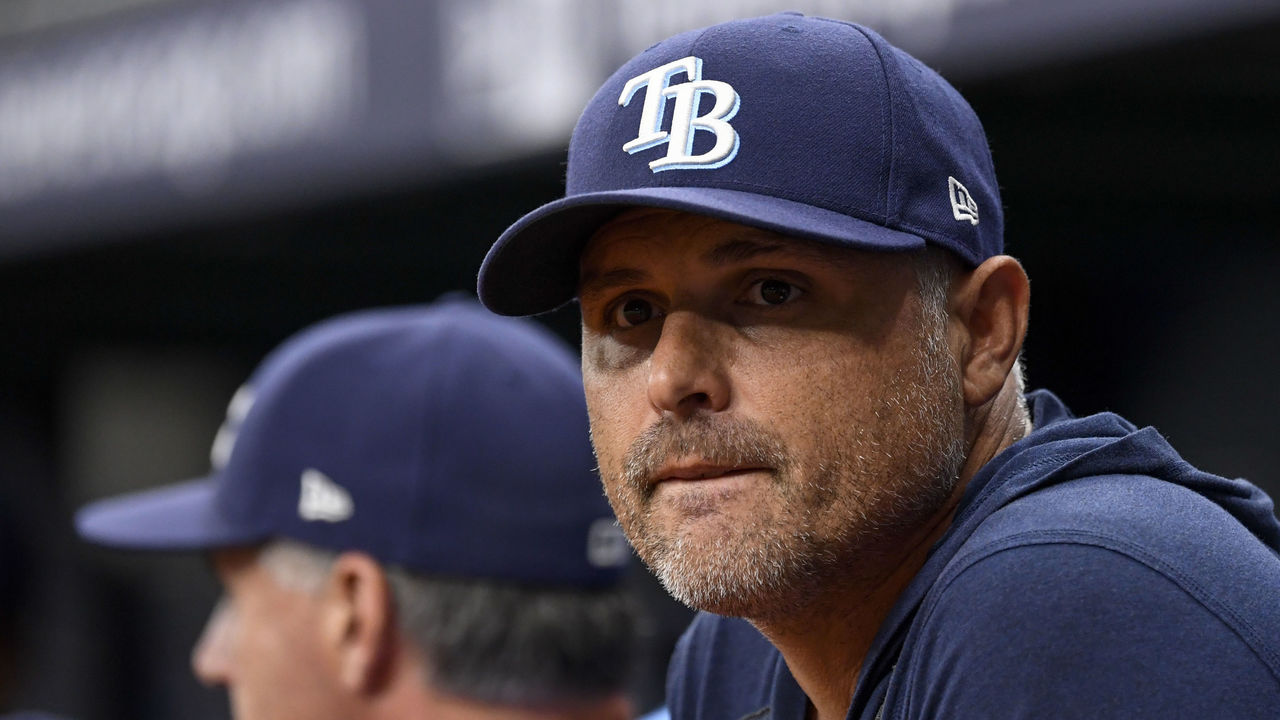
You bring up how Tampa Bay lost the 2020 World Series because of a math decision. Blake Snell was cruising in Game 6, Kevin Cash pulled Snell before the Dodgers batted against him for a third time, and L.A. took the lead. The counterpoint is that the Rays’ analytical approach got them to the World Series in the first place. This got me wondering: Where, to you, is the line at which analytics stop being valuable?
I don’t know that there is a hard line. I would be a moron to make the case fully against analytics. It works for Tampa Bay. It worked for Oakland to get into the playoffs (under Beane). They’re valuable to a point.
But then I think what sometimes happens, human discretion gets cast aside and you always follow the math. There has to be a moment where you trust the guy or you trust your own wisdom. You trust your experience.
Why do we only choose one perspective? Why does analytics become the law? Why can’t it be analytics plus our sense of things? The analytics movement will talk about the pre-“Moneyball” time in sports as being blind, archaic. I feel like we’re trading one kind of blindness for another.
There’s a guy, Ian Graham, who’s a physicist. He’s a backroom architect at Liverpool. He refuses to watch games because he thinks it taints him – that the emotion of it will make him less objective than he needs to be. I’m like, well, you’re just choosing one myopia (over) another. You’re trading the pure eye test for pure analytics. Isn’t there room for both?
The book opens with an Albert Einstein quote: “Imagination is more important than knowledge. Knowledge is limited. Imagination encircles the world.” If sports did more to encourage imagination, creativity, and discretion, what effect would that have on the product?
For me, if you get a really smart person working on something using creativity and imagination, that’s now the competitive advantage. There’s no baseball team that isn’t using analytics now. There’s a limit to what they can divine. You might find a new statistic, or you might find a better way to statistically analyze defense. But at some point, you’re all using the same figures.
The pendulum has swung in favor of analytics. Again, I’m not against them. But I do feel like it’s time for a correction, where you bring it back a little bit. That’s your competitive advantage now: It’s in finding the right person for the right role.
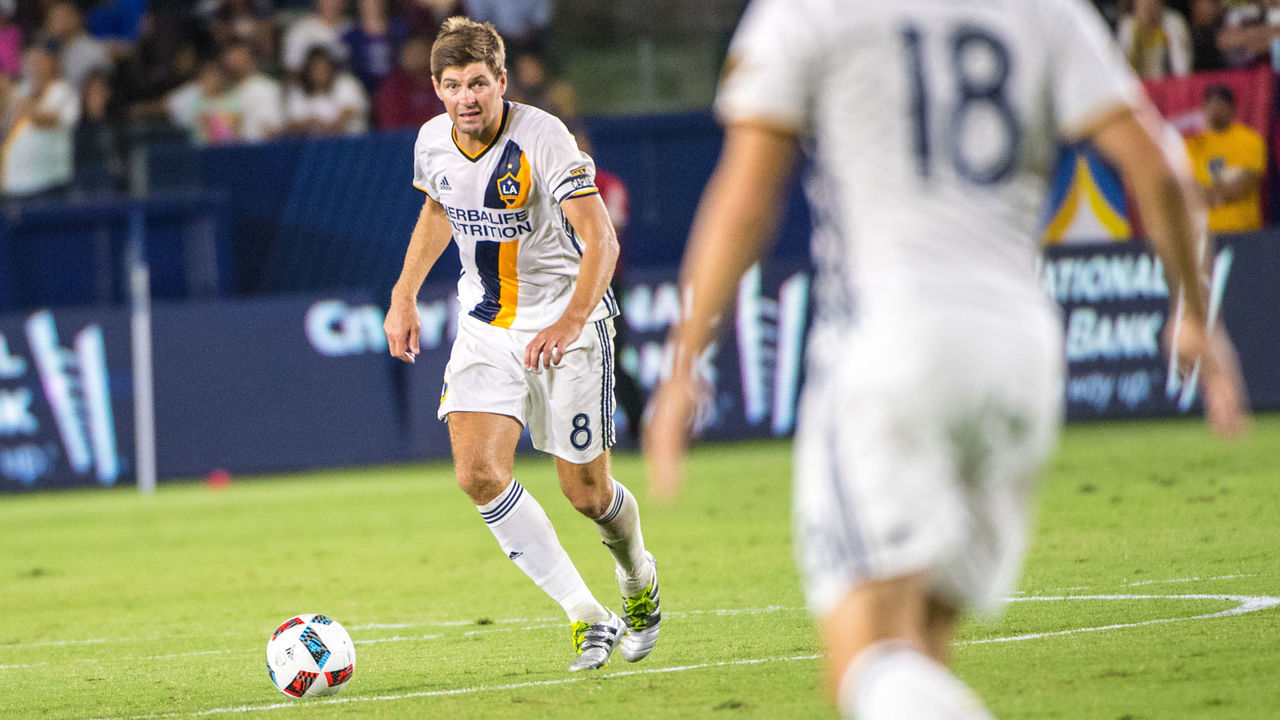
About people who’ve spent a lifetime in their sport, you write, “their bones can reveal its truths better than any spreadsheet.” Who’s a person you had in mind when you wrote this?
I did a story (for ESPN The Magazine in 2014) on Mike Jirschele, who was the Kansas City Royals’ third base coach. He spent, like, 36 years in the minors before he finally got to the majors. His son, Justin, is the youngest manager in professional baseball. I spent a lot of time with both of them.
When I was with Justin, I closely watched a baseball game that he was managing. After the game, we broke it down. He was telling me things that I didn’t even see. For him, these were obvious things. I was like, man, you understand this game because you’ve grown up with it. Because you’ve been around this game since you were a baby. And because after every game you’ve ever played or coached or watched, you and your dad have talked about it.
Steven Gerrard was a major player at Liverpool, and then he moved to the LA Galaxy. I got to watch a game with him. He was doing remarkably accurate analyses of players he’d never seen before. He’d be like, “I don’t know who No. 6 is, but blah, blah, blah,” and he’d be bang-on about who that guy was.
The book is not a case for random gut or flipping coins. But when you’re smart – when you’ve earned an understanding of something – those people are so valuable. You might have a super good quant on your side, but if you also have someone like Steven Gerrard on your side? That’s only an advantage.
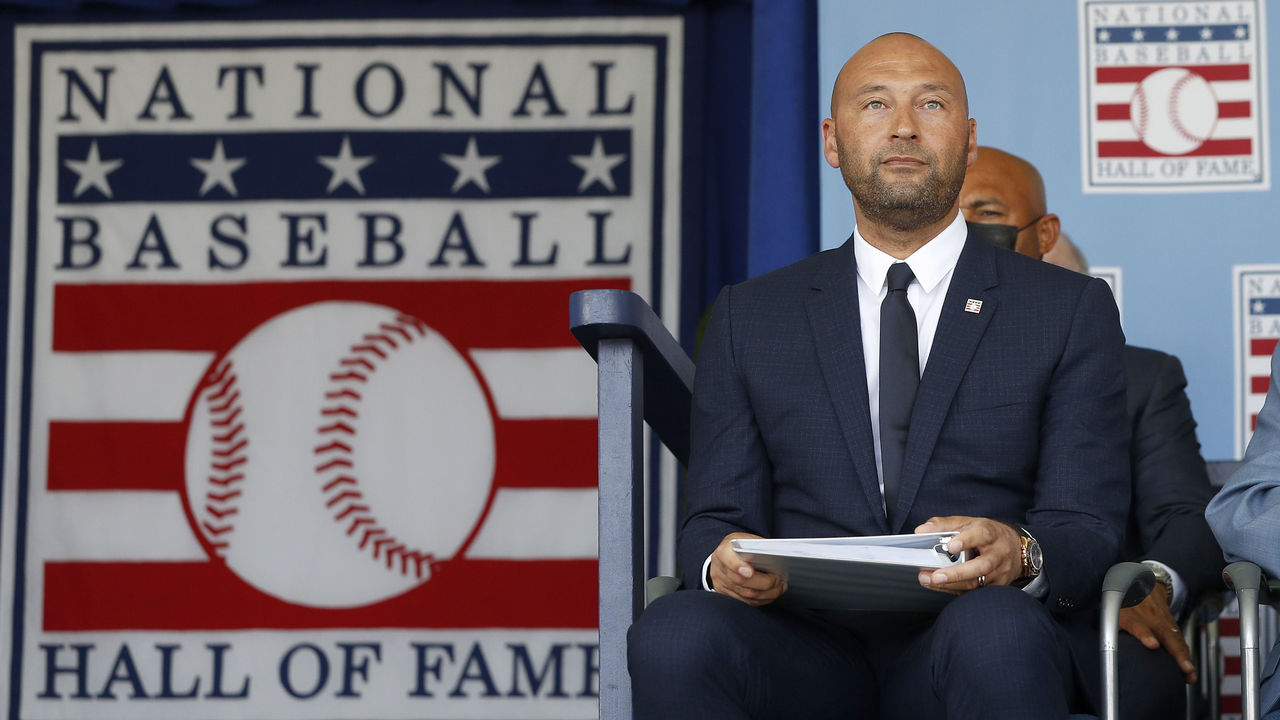
This seems to be where Derek Jeter enters the picture. He won five Gold Gloves, but the metrics show he was a poor fielding shortstop with limited range. Yet he made spectacular plays, like his famous flip in the playoffs against Oakland. To you, what does Jeter represent about the tension between analytics and creativity?
He’s always held up as the reason you can’t trust your eyes. The truth is the eye test and statistics dovetail pretty nicely when it comes to baseball defense. Ordinary fans are pretty good judges of whether someone is good at defense or not.
Jeter is this exception that’s always used as the rule. That’s a narrative sin. That’s what analytical guys always talk about with narrative: “You’re picking and choosing. You can make any argument if you’re selective enough.” That’s what they’re doing with Jeter.
If he was a below-average defender, he still made some amazing plays. He was a great shortstop despite some serious limitations. His knowledge, his wisdom, his experience, all of those things allowed him to make a play like the flip. For me, he’s an optimistic story; a guy who doesn’t have all the physical tools of another player can still rise to greatness given enough passion and attention to detail and practice and time.
He’s the embodiment of what I’m talking about. You earned the knowledge. You put the time in. And you see things that other people don’t see because you love and understand this game in a different way.
You wrote about a play that Jason Witten made to great effect throughout his NFL career. He’d run upfield on the Y Option and choose to turn left or right. What do you find so compelling about Witten and this route?
It’s everything I believe in, which is that you can take a simple, basic, seemingly binary thing and make magic out of it if you understand it better than anybody else. Jason Witten was a huge competitive advantage for the Cowboys because he could do things and saw things that other people couldn’t do or see. He could do it with the most basic route.
The Y Option, as he says, it’s not sexy. It’s left or right. How much thought could go into that? But even that gives you opportunities for greatness and difference and distinction. Imagine a much more complex thing, like policing, like medicine. If you can find a way to be great running the Y Option, imagine the possibilities in other fields of endeavor.
When you spend time around smart, interesting people, you can’t help but be inspired by the way they do what they do. Someone like Jason Witten – God, he was awesome. He was awesome at something that you wouldn’t think someone could be awesome at. But he was. There’s beauty in it.
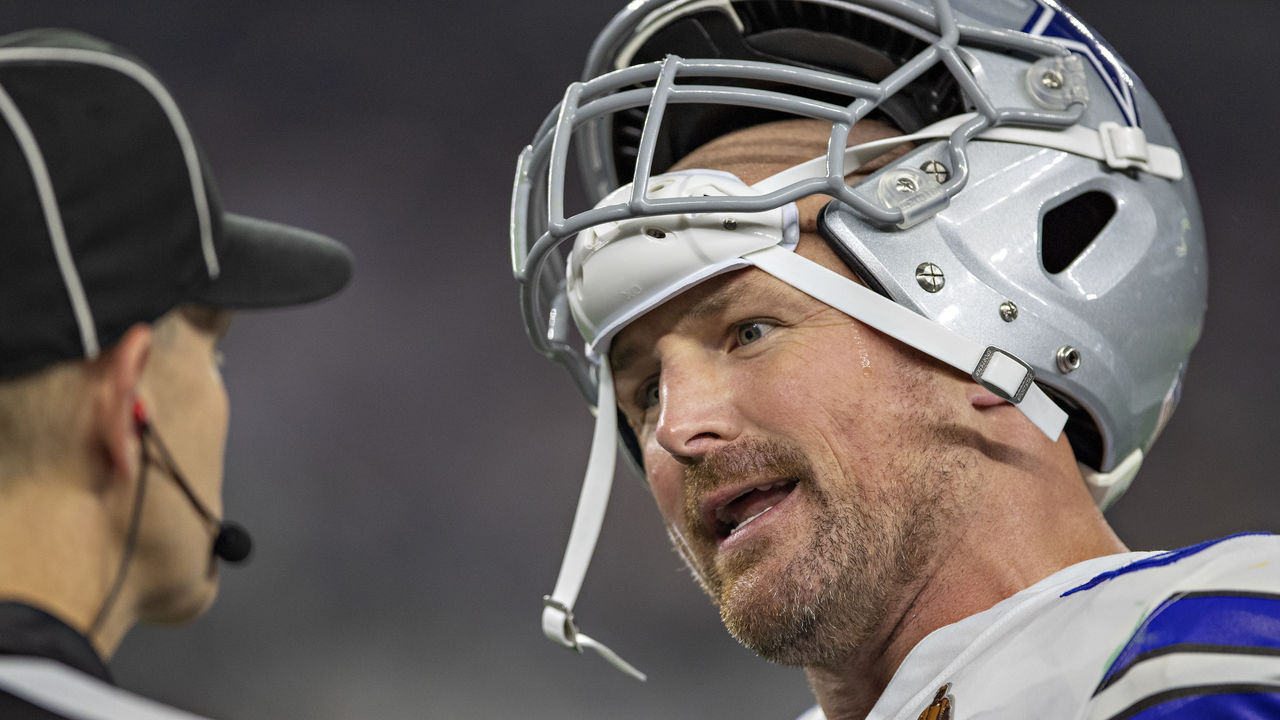
What athlete do you like watching the most these days?
I find him completely confounding: Mo Salah for Liverpool. He had one great season (in 2018), and I wrote a piece that was like, “They need to sell him. He had one great season. It’s a fluke.” Then he did kind of have a downish year, and now he’s arguably the greatest goalscorer in the game. I watch him going, “How did you keep getting better?”
He scored (last) week against Chelsea. I’m a goalkeeper. He made this little fake, (as if) he was going across the net, and instead dumped it short-side. The goalkeeper bit on the fake. I would have bit on the fake. He does stuff that’s so subtle and beautiful. That goal is a good example. The statistics will show that he scored a goal from close range. But when you watch how he got the goal, it reveals so much more about him as a player.
It’s something that Ian Graham, the Liverpool (analyst) who’s looking at his spreadsheets, wouldn’t see. He’d appreciate him as a goalscorer, but he wouldn’t know exactly what makes him great.
It seems like a good example of how analytics and personal brilliance work in tandem. Liverpool has a data-driven approach and Mo Salah, this transcendent player who helps make them a terrific team.
Why would you ever choose to see things one way? Especially complicated things. This will sound a little weird, maybe, but I think we’re all taking in more information at the moment than humans are designed to take in. Because processing information is sometimes hard, we just sort: “I’m on that side. I’m not for that. I am for that.”
It’s making us black-and-white thinkers. For me, there’s so much beauty and possibility in the gray, in the nuance – in where these two things meet. If I had Ian Graham analyzing a football match and I had (Liverpool manager) Jurgen Klopp analyzing a football match, then I think I could really find the truth.
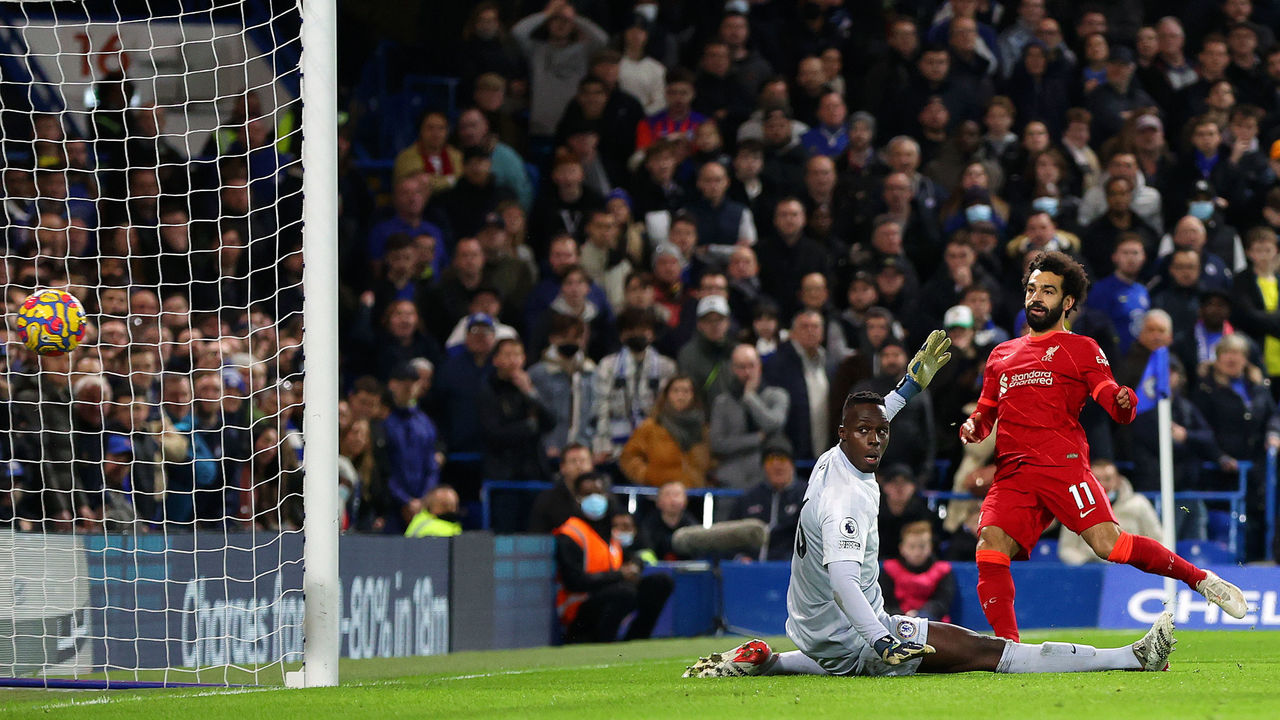
Outside of sports, who’s your favorite character in this book?
Teller, the magician. He gave me my favorite quote that I’ve ever gotten: “Sometimes, magic is just someone spending more time on something than anyone else might reasonably expect.”
He does magic that is so confounding, other magicians are completely fooled by him. I went to his house and he gave me a deck of cards. He’s like, “I want you to pick a card out of this deck. Don’t show me.” I cupped the deck. I looked at the card. He’s like, “OK, just remember that card.” Half an hour later, we went outside. There was a sculpture of a big bear in the yard. The bear starts talking and goes, “Was your card the three of clubs?” And it was.
The answer to how that happens is time. It’s loving it more than somebody else. Putting the time in, being careful, always striving toward improvement, watching, learning. He has a voracious appetite for magic and magicians past.
For me, he’s the ideal of how you make something beautiful, which is basically what the book is for me. I hope people read the book and are inspired to do something awesome.
Nick Faris is a features writer at theScore.
Copyright © 2022 Score Media Ventures Inc. All rights reserved. Certain content reproduced under license.
You may like
Premier League
Breaking down thrilling EPL title race with 10 games left
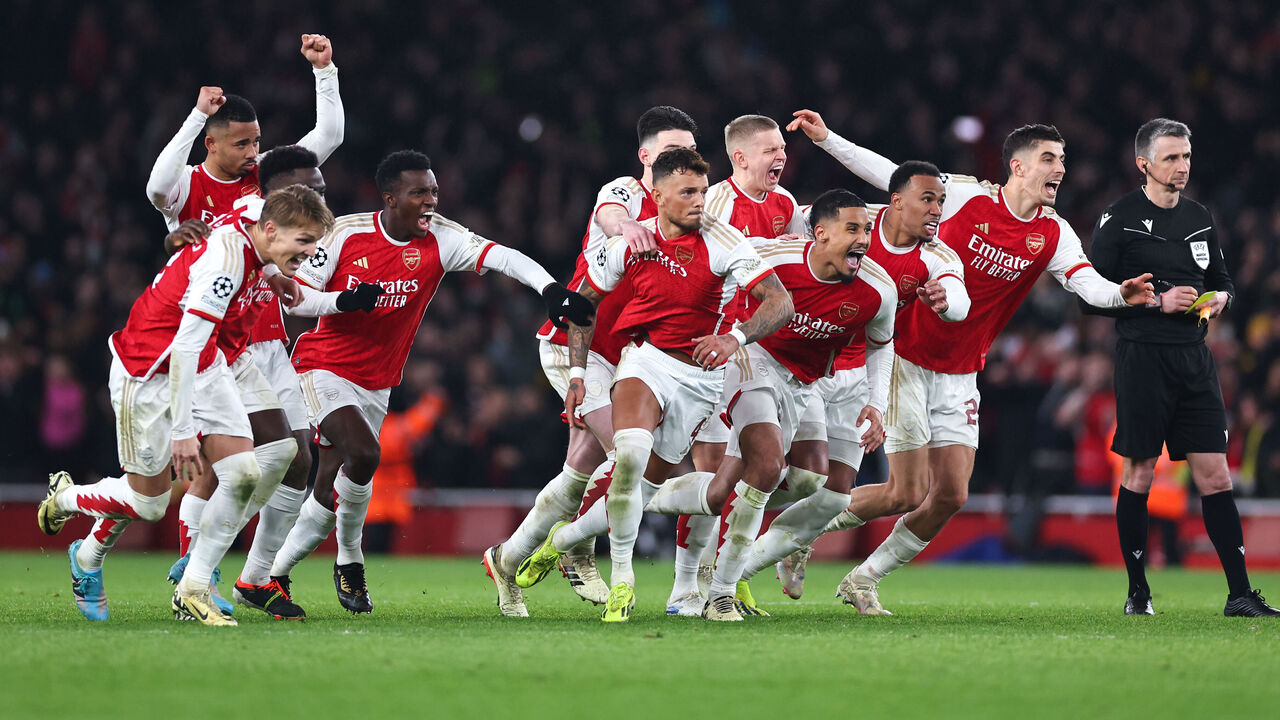
Find the biggest stories from across the soccer world by visiting our Top Soccer News section and subscribing to push notifications.
One of the most intoxicating title races in Premier League history is, mercifully, ready to resume.
The quirks of the calendar – an FA Cup weekend succeeded by an agonizing international window – means the titanic tussle between Arsenal, Liverpool, and Manchester City will have been on hiatus for a full three weeks before it gets back underway on Sunday.
But there are no more impending interruptions. With 10 matches remaining for each title contender, we’re barreling toward a resolution to the type of three-way battle that’s exceedingly rare in England’s top flight. There’s never been a season in the Premier League era where three teams went into the final day with a chance to hoist the trophy. This could be it. The last time it happened was the 1971-72 campaign, when Derby County won an incredible four-team fight, narrowly beating Leeds United and, ominously, Liverpool and Man City to the crown. We’re overdue for that kind of drama.
That three sides have converged this way at all is, frankly, remarkable.
These are the three best teams in the country by an enormous margin. They’re the only ones with an expected goal difference per game of plus-1.0 or greater this season. The next best mark, surprisingly, belongs to Mauricio Pochettino’s erratic Chelsea team at plus-0.36. So, yeah, it’s not close.
The three of them are also on a tear and show no signs of slowing down. Arsenal have won all eight of their league games in 2024, scoring 33 goals in the process; Liverpool have collected 22 of a possible 27 points in that time; reigning champions Manchester City have racked up 23 of 27 points. They’ve combined for just one loss since the calendar flipped – Liverpool’s 3-1 defeat against Arsenal in early February.
The only sides that look capable of halting their progress are each other, which makes this weekend’s clash between Manchester City and Arsenal at the Etihad all the more significant.
Each contender has a compelling reason for believing it’s “their” year.
Arsenal
Mikel Arteta’s men look far more assured and mature than last season when they set the pace for nearly the entire campaign, only to crumble down the stretch and relinquish their once sizeable advantage to Manchester City. Do-it-all superstar Declan Rice has been a transformative figure in midfield, while Kai Havertz, after an inauspicious start, is becoming an increasingly vital and consistent scoring threat. At least from the outside, there appears to be more self-belief within the Arsenal camp. Having learned from their experience in 2022-23, Arsenal won’t cede top spot so easily this time. It’ll need to be ripped from them.
Some may be inclined to dismiss their recent run because of their opponents. Yes, the Gunners have played some weak teams – Sheffield United! Burnley! Nottingham Forest! – but, for the most part, they aren’t just beating them; they’re blowing them away with a ruthlessness usually associated with title winners. For those still unconvinced, Sunday’s visit to the Etihad, where they were tossed aside like a rag doll in last season’s 4-1 loss, will be the ultimate litmus test to see if this team is ready to end the club’s 20-year title drought.
Liverpool
Jurgen Klopp’s persistent squad, already with the League Cup in tow, aims to send off their departing bench boss in style. Liverpool have been the most entertaining team of the trio this season. They create more chances than Arsenal and City and concede more opportunities. Darwin Nunez, the ultimate agent of chaos on a football pitch, is the perfect fit for a team with a habit of scoring late goals and delivering dramatic moments. Their title charge is built on more than just vibes, though.
Liverpool overwhelmed none other than City in their last league game before the international break but came away from the pulsating affair at Anfield with a 1-1 draw. City, usually self-confident and domineering in possession, simply held on against what Pep Guardiola dubbed a “tsunami” of pressure. There was obviously some added incentive at play, but Liverpool are built to go full speed regardless of the opposition. It’s in their nature under Klopp.
Manchester City
Despite not being at its vintage best this term, Guardiola’s accomplished crew remains the favorite in the eyes of many who, for good reason, simply refuse to pick against them. We’ve been conditioned to feel like City will inevitably be the last team standing because, well, they usually are. Five titles in the previous six seasons will have that effect on the collective psyche. However, Erling Haaland isn’t replicating his ferocious scoring pace from last season, and Kevin De Bruyne has been limited to six league starts. Also, outside of some electrifying Jeremy Doku performances, the summer signings haven’t exactly set the world alight. And yet, here they are, just one point off the top, showing the quiet confidence and tranquility that can only be obtained through winning experiences.
With Phil Foden leading the way and authoring arguably the best season of anyone in the league, City could become the first team in English history to win four consecutive top-flight titles.
Strength of schedule
On paper, Arsenal have the most difficult fixture list.
Their remaining opponents average 41.8 points this season, roughly corresponding to ninth place in the table. Put another way, it would be the equivalent of playing Wolves (41 points) or Brighton (42) each week. It doesn’t help that many of Arsenal’s toughest matches are away from home. Coincidentally, they have upcoming trips to Brighton and Wolves, along with north London rivals Tottenham and Manchester United, following this weekend’s potentially decisive tilt at the Etihad. It’s tough.
Manchester City’s task is slightly more forgiving, as their remaining opponents average 40.7 points or 10th place.
Liverpool appear to have the most favorable schedule of the trophy chasers, with their opponents averaging 38.4 points, a tally representing the haul of a team in the bottom half of the table. While that’s better than the alternative, it’s not quite so simple for the Reds. On the back of a potentially draining Europa League quarterfinal second leg against Atalanta in mid-April – more on that soon – Klopp’s men have three away games in seven days against Fulham, Everton, and West Ham. In addition to battling their local nemesis, who could still be scrapping for survival at that point, Liverpool will also face a rambunctious Goodison crowd that would love nothing more than to play a critical role in stopping their hated rivals from winning another league crown.
Aston Villa and Spurs, meanwhile, stand out as common foes for all three title hopefuls. Sitting fourth and fifth, respectively, and engaged in their own fight to secure a Champions League place, they could play the role of kingmakers this spring.
European commitments
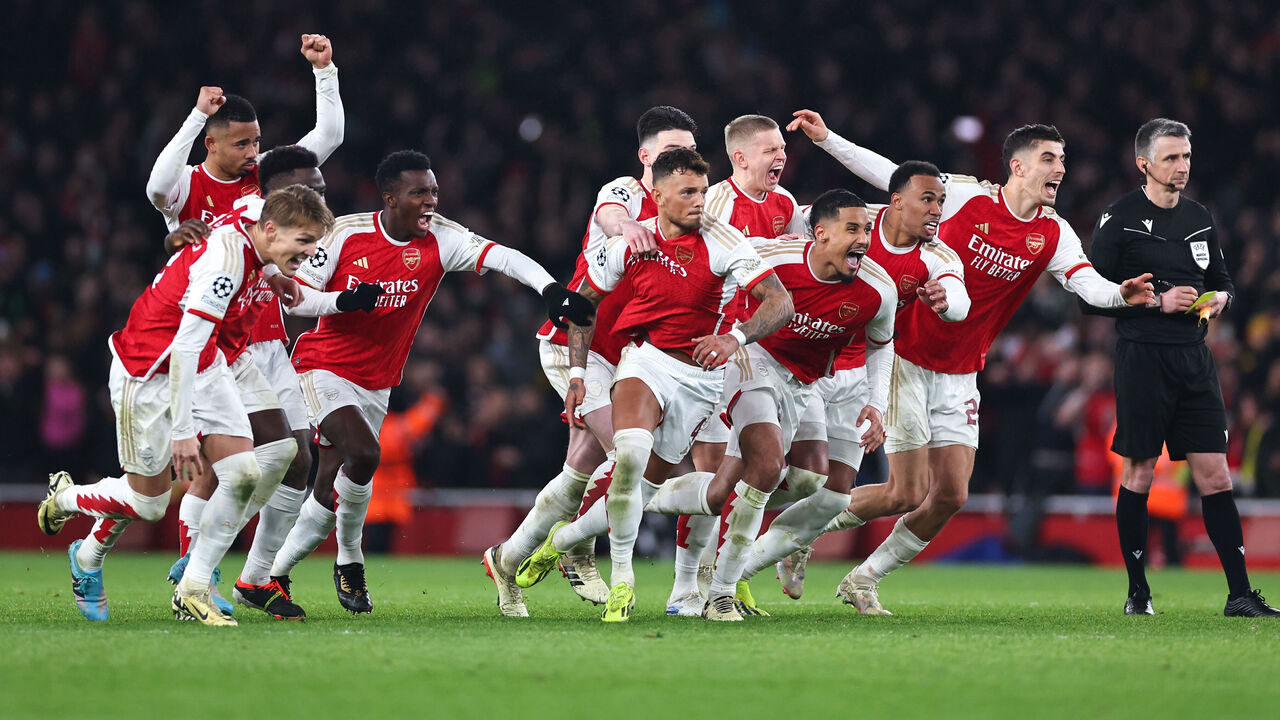
Balancing the mental and physical demands of domestic play with continental competition is a huge piece of this puzzle for all three teams. Midweek success can further galvanize a group, but taxing failures can cripple a team’s momentum at home.
Much like the domestic schedule, Liverpool seem to have an edge here. Arsenal and Manchester City will face European behemoths Bayern Munich and Real Madrid in a pair of mouthwatering Champions League quarterfinal ties beginning next month. However, Liverpool have a comparatively charitable Europa League encounter with Atalanta.
If they both advance, Arsenal and City will meet in the Champions League semifinals, an outcome that will surely be celebrated wildly on Merseyside.
How those games intermingle with the league schedule also matters. Liverpool play Crystal Palace and Fulham following their two matchups with the Italian outfit. After locking horns with Bayern, Arsenal have to contend with Aston Villa and Wolves. Manchester City, still active on three fronts as they seek a second consecutive treble, host lowly Luton after the first leg of their Real Madrid rematch and take on Chelsea in the FA Cup semifinals following the second leg.
Injury concerns
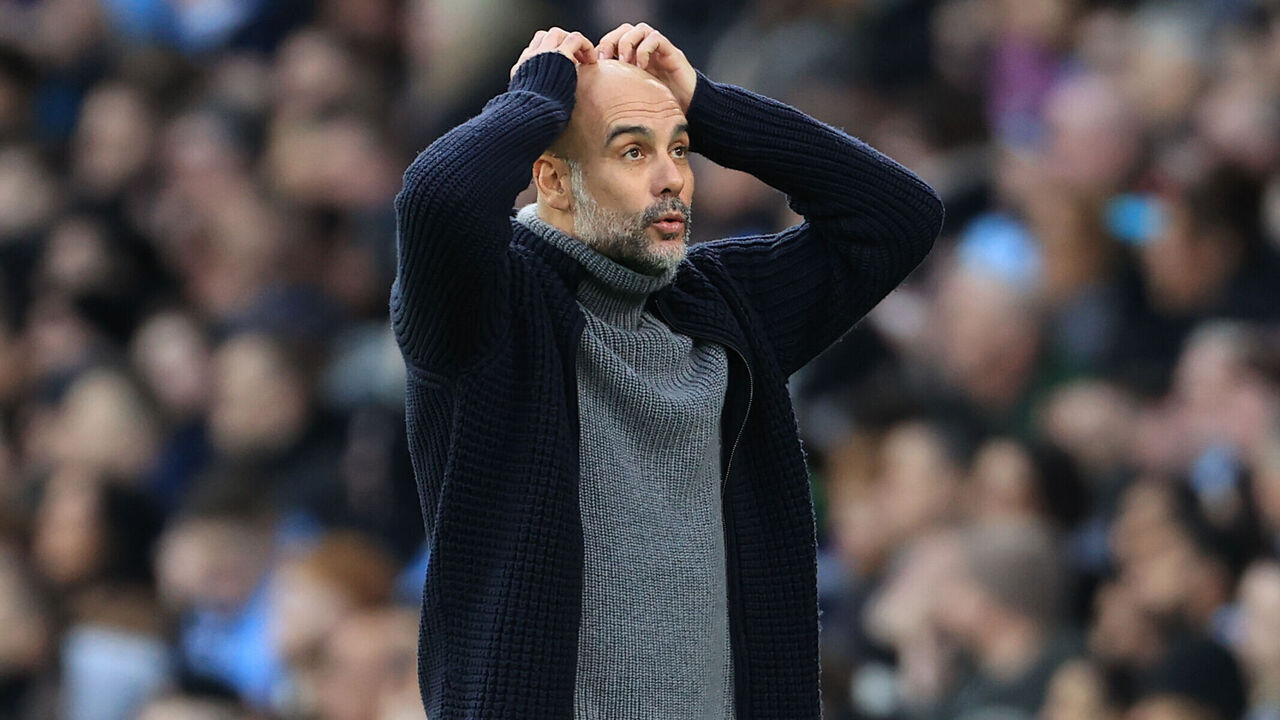
Liverpool have been plagued by injuries all season. Mohamed Salah, Trent Alexander-Arnold, Darwin Nunez, Diogo Jota, and Andy Robertson, among others, have missed varying amounts of time, though the bulk of that group is getting back to full fitness. Alisson Becker remains sidelined and might not return until mid-April. Defensive stalwart Virgil van Dijk is the only Liverpool player to garner over 2,000 league minutes this season, indicating how disruptive injuries have been for Klopp’s team. And yet, they persevere.
Five Manchester City players have cleared the 2,000-minute mark thus far, and a couple more are on the cusp. But the club was without De Bruyne for the entire first half of the season, while trips to the treatment room ravaged Jack Grealish’s year. City also got hit the hardest by the recent international break, with John Stones and Kyle Walker hurt on England duty and racing against time to recover for Sunday’s match versus Arsenal. Swiss defender Manuel Akanji is in the same boat, and Ederson’s return date from a thigh injury remains uncertain. Never shy about tweaking his lineup, Guardiola could be forced to tinker yet again.
Arsenal have been largely unscathed, with six players eclipsing 2,000 league minutes. William Saliba, whose absence last season played an outsize role in Arsenal’s capitulation, has been on the pitch for every second of league play in 2023-24. Gabriel Jesus has battled ailments all year, and Jurrien Timber suffered an ACL injury just 49 minutes into his Premier League debut in the season opener. But the Gunners will be hoping their relative good fortune on the injury front extends right through May, especially as it relates to Bukayo Saka, who pulled out of the England squad to nurse a minor muscular issue.
Prediction
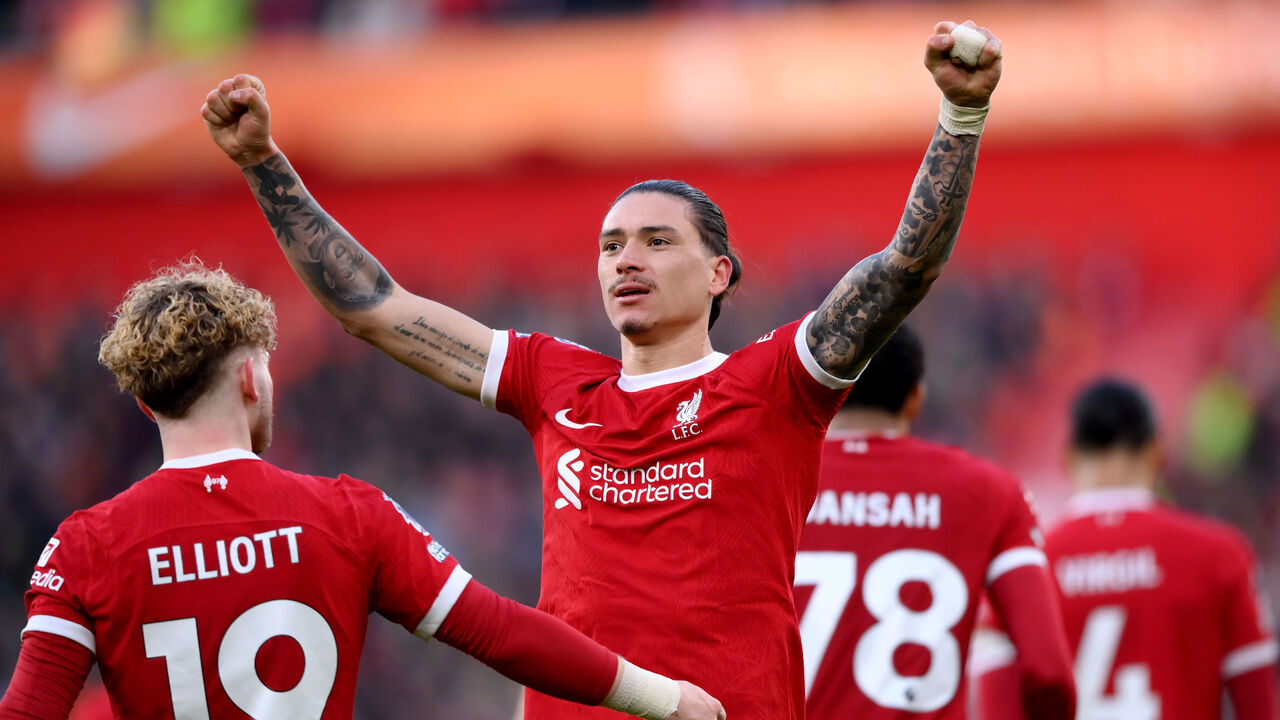
First, a disclaimer: Luck will play a pivotal role in determining which team is crowned on May 19. Injuries will continue to be a factor. There will almost certainly be contentious refereeing and VAR decisions that favor and oppose the title challengers. There will also be finishing variance, with players missing seemingly easy chances and converting more difficult opportunities.
Impossible to predict? No matter. We’re not going to let that stop us.
Considering their advantageous schedule, at home and in Europe, along with their improving squad health at just the right time and the inescapable feeling that this is a team of destiny determined to send their beloved manager out on a high, we’re going with Liverpool, who’ll collect 88 points to pip their rivals and again interrupt Manchester City’s run of domestic dominance.
Copyright © 2024 Score Media Ventures Inc. All rights reserved. Certain content reproduced under license.
Premier League
Euro 2024 playoffs: Miraculous Ukraine comeback, big result for Wales
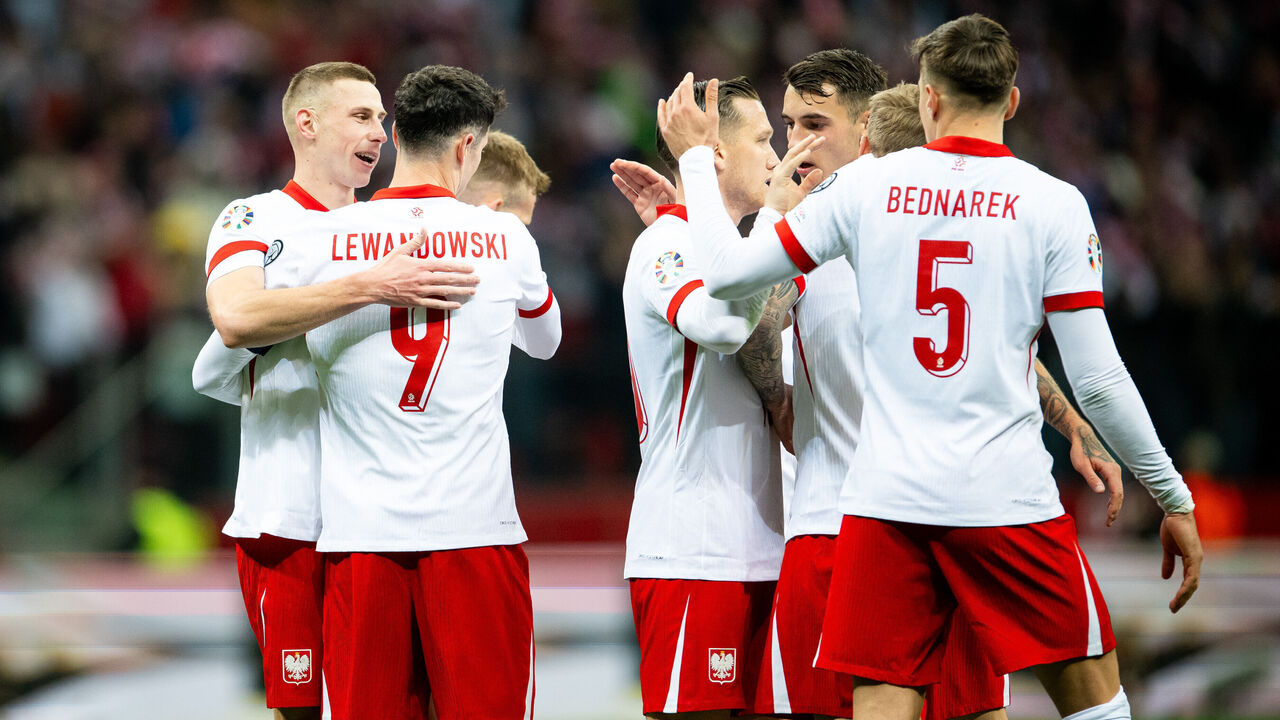
Find the biggest stories from across the soccer world by visiting our Top Soccer News section and subscribing to push notifications.
Wales, Greece, and Poland registered statement wins Thursday, joining three other teams in next Tuesday’s playoff finals for the three remaining places at Euro 2024.
Ukraine staged an incredible late comeback against Bosnia and Herzegovina in its semifinal to keep its Euro dream alive.
The highest-placed team in FIFA’s rankings that’s no longer in contention to reach the tournament in Germany is 60th-placed Finland.
Here’s how the playoff semifinals across Path A, B, and C played out.
Path A
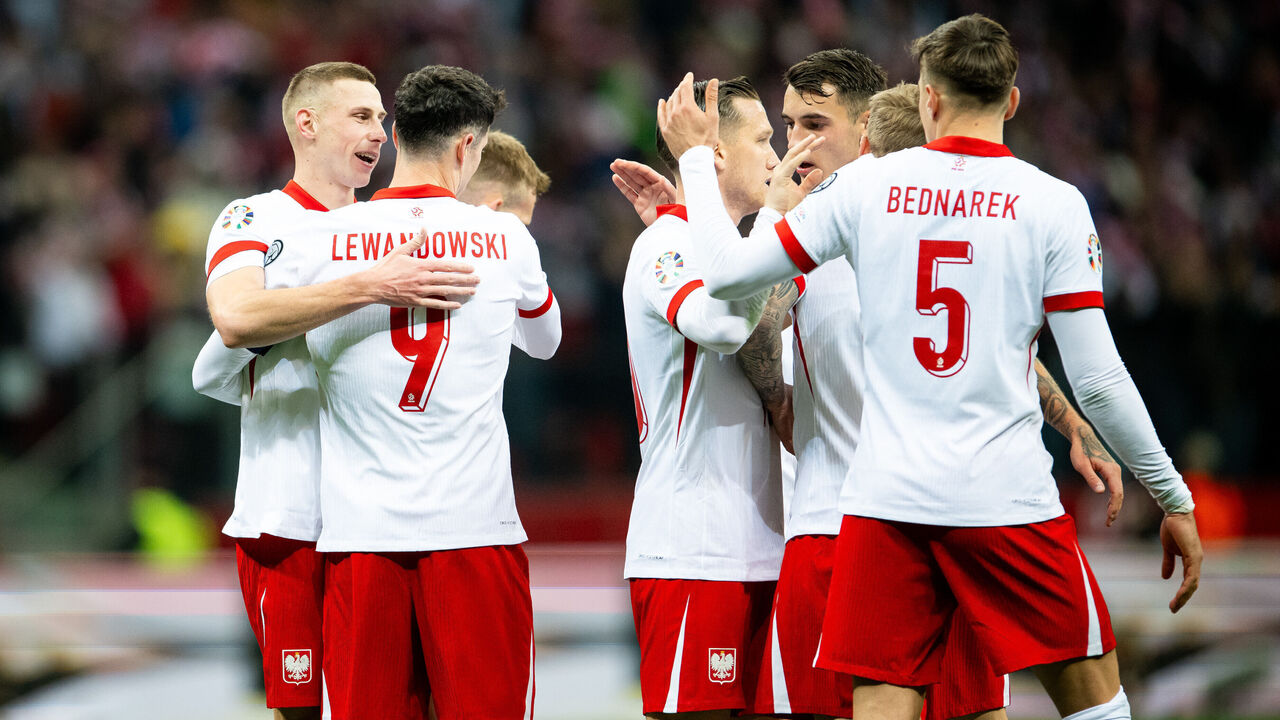
Poland 5-1 Estonia
Estonia barely stood a chance. Down to 10 men as early as the 27th minute, the northern Europeans could only muster a consolation goal in a 5-1 loss to Poland. The Polish achieved the rout without Robert Lewandowski getting on the scoresheet and remain unbeaten in 21 Euro qualifiers at home, a magnificent run dating back to September 2006. Poland is trying to make up for a poor qualifying campaign in which it finished third in Group E, four points behind the Czech Republic and Albania. The country hasn’t missed the Euros since 2004.
Wales 4-1 Finland
The Red Wall might descend on Germany this summer. Wales’ raucous supporters have legitimate hopes of traveling to another major tournament after the Dragons scorched Finland without the retired Gareth Bale and with Aaron Ramsey, 33, on the bench after more injury problems. Teemu Pukki gave the visiting team some hope just before halftime following well-taken finishes from David Brooks and Neco Williams. But Wales needed just 73 seconds of the second period to restore its two-goal cushion via Brennan Johnson’s tap-in. Daniel James took advantage of a defensive error before rounding the goalkeeper in the 86th minute to give the host a resounding victory.
Playoff final: Wales vs. Poland, Tuesday 3:45 p.m. ET
Path B
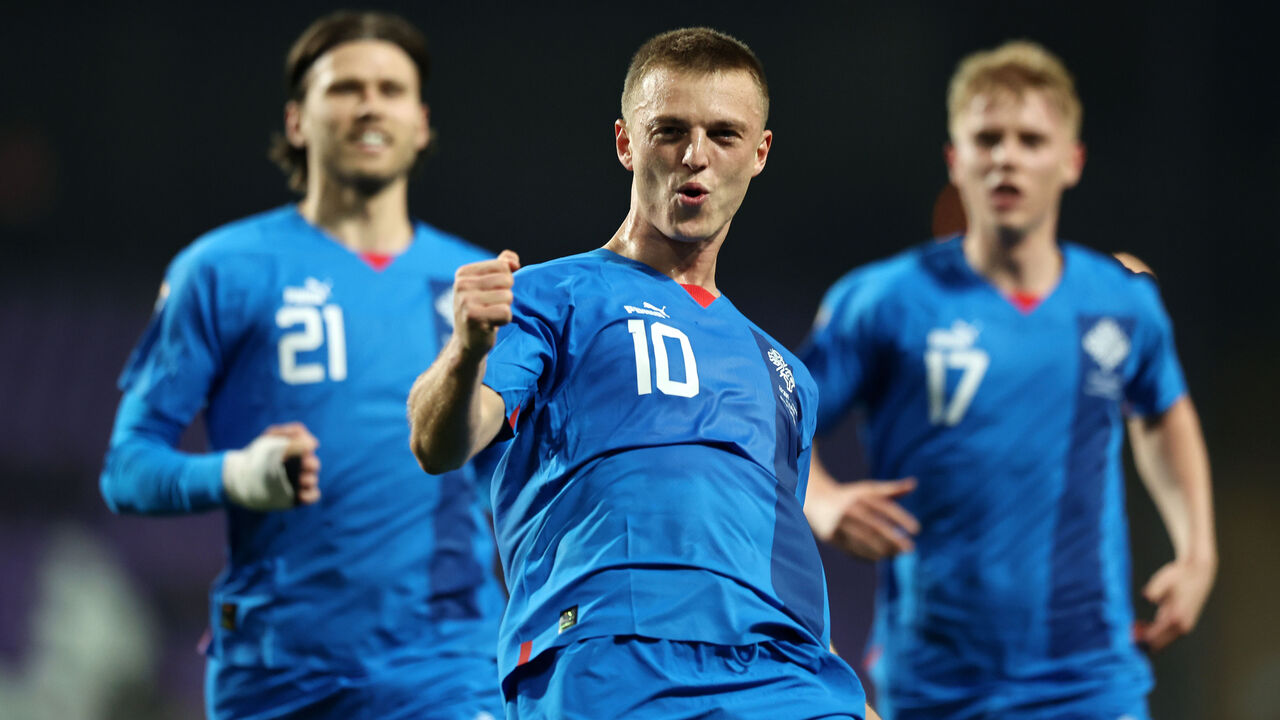
Israel 1-4 Iceland
Iceland’s Albert Gudmundsson stole the show with an emphatic hat-trick against Israel on Thursday. His stunning free-kick into the top right corner canceled out Eran Zahavi’s opening goal for Israel, and he created a nice cushion for his country with a pair of markers in the final 10 minutes. Just before that, Zahavi blew an incredible opportunity to equalize the match at 2-2, missing a penalty awarded for handball against Iceland’s Gudmundur Thorarinsson. A red card to Israel’s Haim Revivo didn’t help the trailing side. Iceland is now a game away from making only its second-ever appearance at the Euros following its quarterfinal run in 2016.
Bosnia and Herzegovina 1-2 Ukraine
Ukraine scored twice with just minutes remaining in regulation to snatch what seemed to be a sure victory from Bosnia and Herzegovina on Thursday. Bosnia controlled play for most of the match and took the lead in the 56th minute when Mykola Matviyenko turned in Amar Dedic’s shot into his own net. But a colossal defensive lapse cost the Bosnians a chance to make it a record four countries from the former Yugoslavia at Euro 2024. Roman Yaremchuk came off the bench to equalize in the 85th minute and teed up Artem Dovbyk’s sensational winning header three minutes later to turn the playoff semifinal on its head. Ukraine now faces Iceland with a third consecutive Euro appearance at stake.
Playoff final: Ukraine vs. Iceland, Tuesday 3:45 p.m. ET
Path C
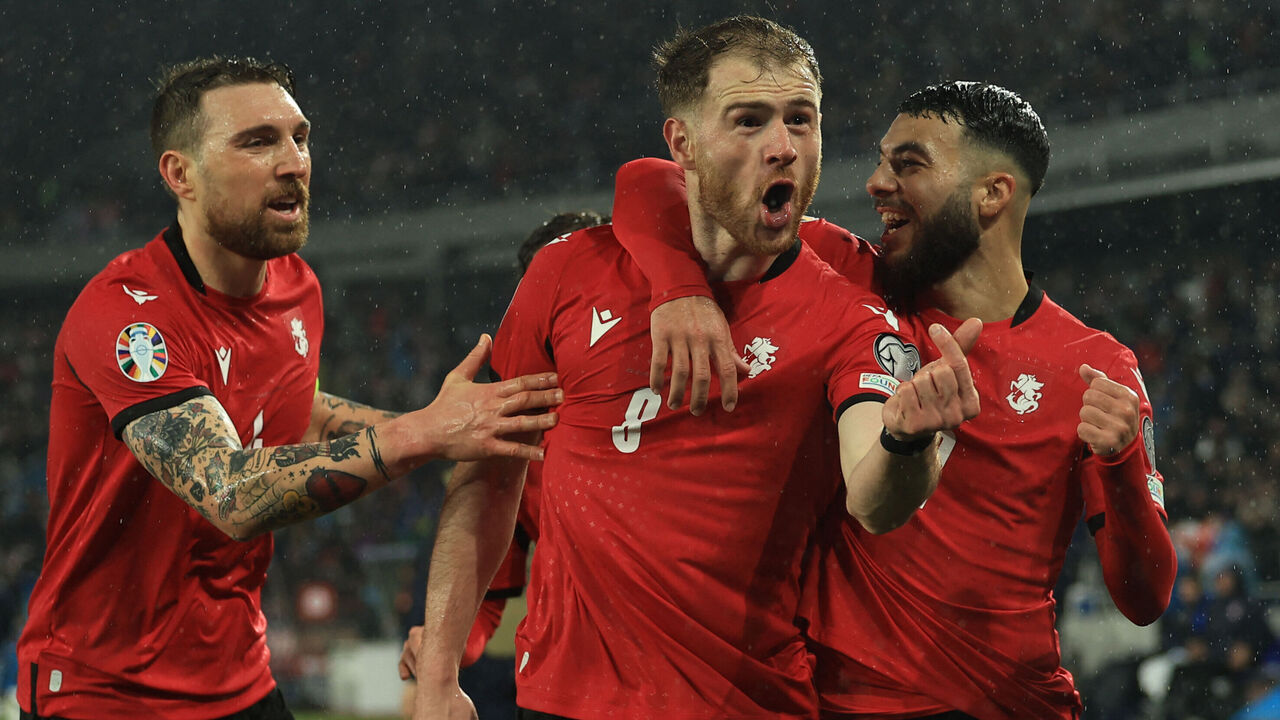
Georgia 2-0 Luxembourg
Two clever finishes from Budu Zivzivadze in Tbilisi assured Georgia of a place in Path C’s final – and all without the help of suspended talisman Khvicha Kvaratskhelia. But it wasn’t that simple for the host. Luxembourg thought it equalized during the second half, only for the goal to be eventually snatched away due to Maxime Chanot’s apparent foul 45 seconds earlier. Luxembourg’s Chanot was controversially sent off for denying a clear goal-scoring opportunity, and Zivzivadze effectively ended the match six minutes later with his second strike. Kvaratskhelia is available for the final.
Greece 5-0 Kazakhstan
Anastasios Bakasetas lashed home a penalty, Dimitrios Pelkas headed into the net’s roof, Fotis Ioannidis tapped in from close range, and Dimitrios Kourbelis added another header. And that was all before halftime. Kazakhstan’s impressive 2022-23 Nations League campaign and notable Euro 2024 qualifying wins over Denmark, Northern Ireland (twice), and Finland suddenly seemed ages ago, as Greece recorded its biggest halftime lead since October 1978 (5-0 against Finland). Aleksandr Marochkin’s embarrassing own goal in the 85th minute made Kazakhstan’s day even worse.
Playoff final: Georgia vs. Greece, Tuesday 1:00 p.m. ET
Copyright © 2024 Score Media Ventures Inc. All rights reserved. Certain content reproduced under license.
Premier League
Look: Nike unveils beautiful kit selection for Euro 2024, Copa America

Find the biggest stories from across the soccer world by visiting our Top Soccer News section and subscribing to push notifications.
Nike released a stunning batch of threads ahead of Euro 2024 and Copa America on Monday.
Days after Adidas launched its lineup for the summer’s top two tournaments, Nike followed suit with an array of colorful designs.
The U.S. manufacturer also announced redesigns for Canada and Poland, even though they’ve yet to qualify for their respective tournaments. The Canucks face Trinidad and Tobago in a one-off Copa America qualifier on Saturday, while Poland must navigate a four-team playoff to reach Euro 2024.
(All images courtesy of Nike)
Euro 2024
Croatia
Home

The square-shaped design that gives Croatia its unique look gets a slight upgrade. The home shirt features larger squares than ever before.
Away

Croatia’s away shirt plays on the national flag, with the traditional checkered pattern now on a slant.
England
Home

Influenced by England’s 1966 training gear, the home shirt has a classic feel with a rich blue collar and gorgeous trim along the cuffs.
Away
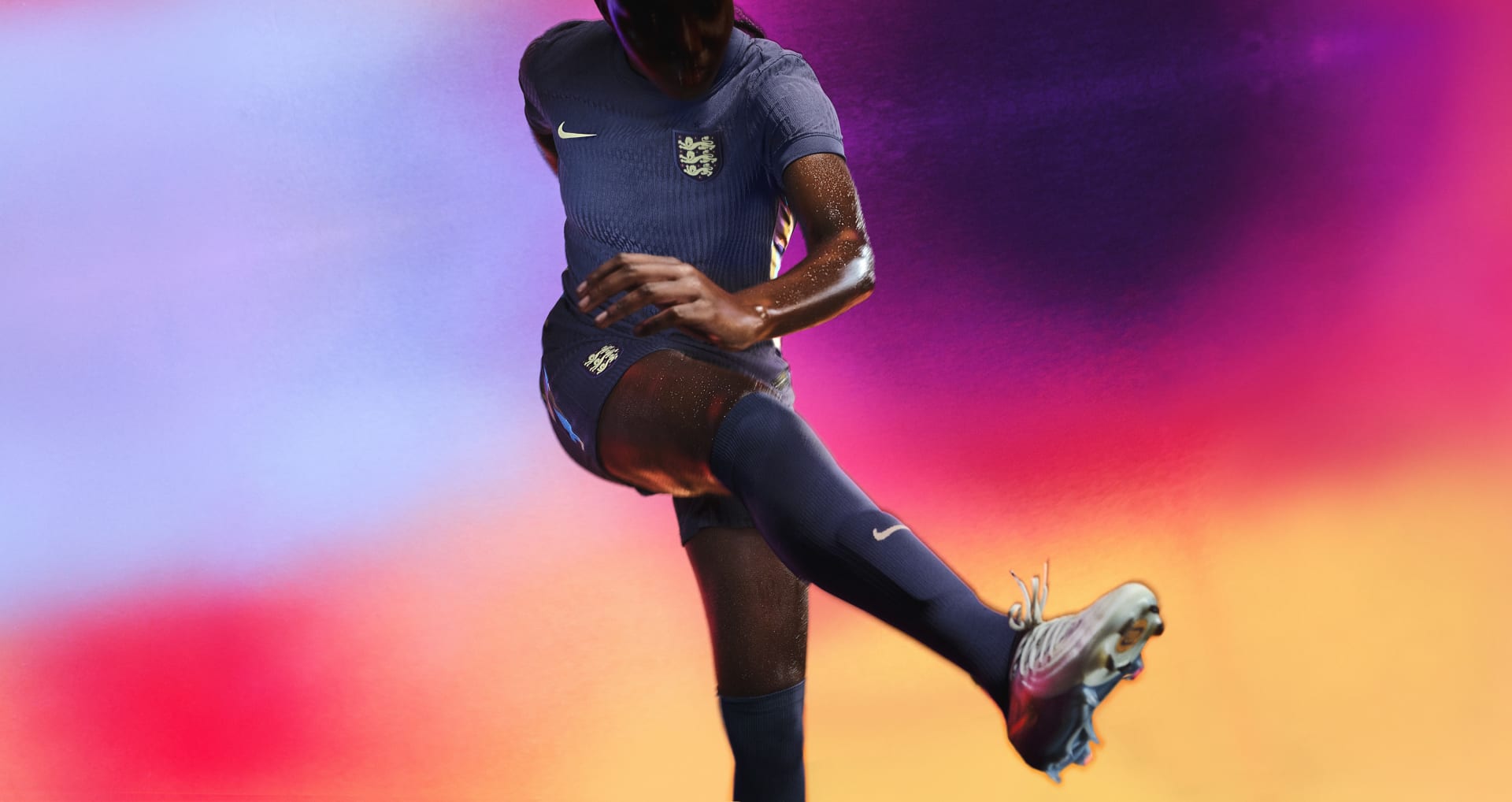
England embraces a deep purple hue for its away selection. The crest stands out with a contrasting off-white tint that makes the three lions pop.
France
Home

France’s home shirt may have the biggest crest of all of Nike’s offerings. The oversized rooster defines this shirt as much as the royal blue that’s made France’s kits a crowd-pleaser.
Away

The pinstripes mirror the colors of France’s national flag and span the width of the shirt in a simple, yet elegant design.
Netherlands
Home
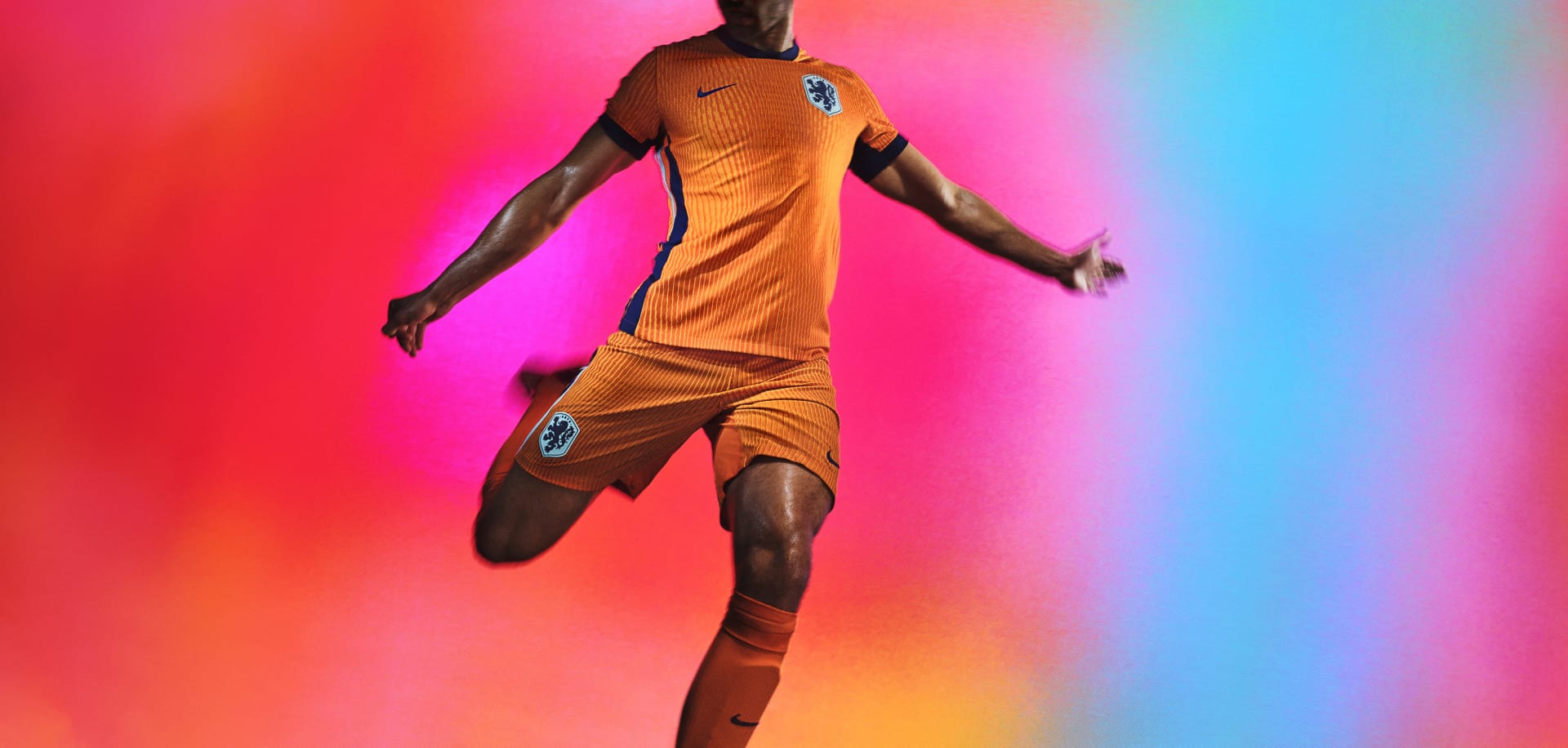
Nike could’ve offered anything orange here, and it would’ve been perfect. But the Netherlands has something bolder and better to wear. The zig-zag pattern adds edge.
Away

The orange collar and cuffs pop alongside the three shades of blue Nike has chosen to create the abstract design on this work of art.
Poland
Home

Poland dedicates premium real estate on the country’s home shirt to its imposing crest.
Away

Poland’s away shirt is a daring choice. The graphic treatment adds texture, giving it a rugged feel while separating from the red tones of years past.
Portugal
Home

With possibly the best home shirt in Nike’s collection, Portugal leans heavily into its traditional red-and-green motif with a polo collar and thick cuffs. The logo sits prominently as well. A smash hit.
Away

Here’s another winner. Portugal’s away strip has a stunning textile imprint that gives off a cool summer vibe.
Turkey
Home

This is a menacing look. Turkey will look like a whirring red army with these imposing shirts.
Away

The classic red band returns to Turkey’s away uniform. Like the others, it features an oversized crest in the middle of the shirt.
Copa America
Brazil
Home

Nike goes big with Brazil’s crest and adds an intricate design to the same yellow hue the Selecao have used for decades.
Away

Brazil’s secondary strip feels like the beach. A horizontal wavy pattern covering the entire shirt mimics the country’s picturesque coastline.
Canada
Home

The only blemish in Nike’s lineup. Why is there a circle around the swoosh? And why are the shoulders so much darker than the body? None of it makes sense.
Away

The 13 pinstripes are supposed to represent the 10 provinces and three territories that make up Canada. Unfortunately, the rest of the shirt looks incomplete.
United States
Home

The United States men’s national team gets a classic home shirt with patriotic detailing along the color and sleeves.
Away

The gradient works perfectly with the red shorts the U.S. will wear at the Copa America.
Copyright © 2024 Score Media Ventures Inc. All rights reserved. Certain content reproduced under license.

Breaking down thrilling EPL title race with 10 games left

Euro 2024 playoffs: Miraculous Ukraine comeback, big result for Wales

Managerial merry-go-round: Predicting hires for marquee jobs

The Champions League's best XI so far

35 stars who will define the summer transfer window

Ajax show Juventus that winning requires more than individual quality
Trending
-
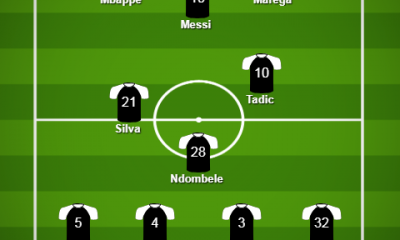
 Champions League5 years ago
Champions League5 years agoThe Champions League's best XI so far
-
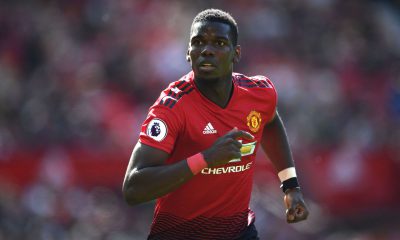
 Serie A5 years ago
Serie A5 years ago35 stars who will define the summer transfer window
-

 Serie A5 years ago
Serie A5 years agoAjax show Juventus that winning requires more than individual quality
-
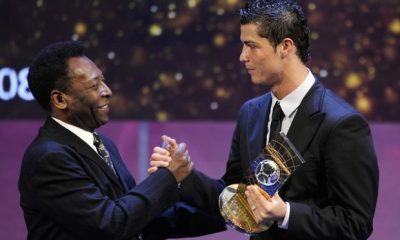
 Uncategorized3 years ago
Uncategorized3 years agoIFFHS publishes the list of top scorers in football history – Romario first, Ronaldo third
-
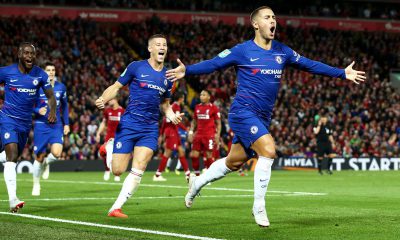
 Premier League5 years ago
Premier League5 years agoTransfer grades: Assessing Hazard’s move to Real Madrid
-
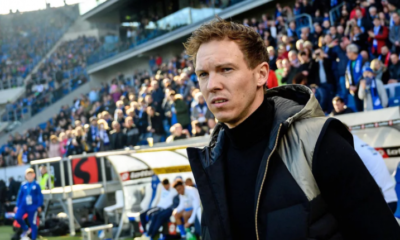
 Sports5 years ago
Sports5 years agoReady Newest Trainer in Bundesliga History, retire SOLSKYER.
-
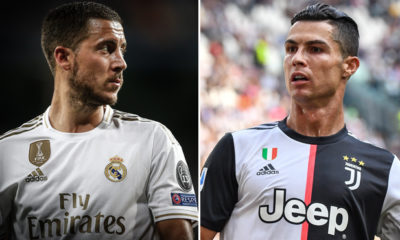
 Sports5 years ago
Sports5 years agoWenger: Hazard can’t replace Ronaldo.
-

 Sports5 years ago
Sports5 years agoMastur Talent Returns: In Milan I was a chance to make money, penalized me for growing up as a footballer.

